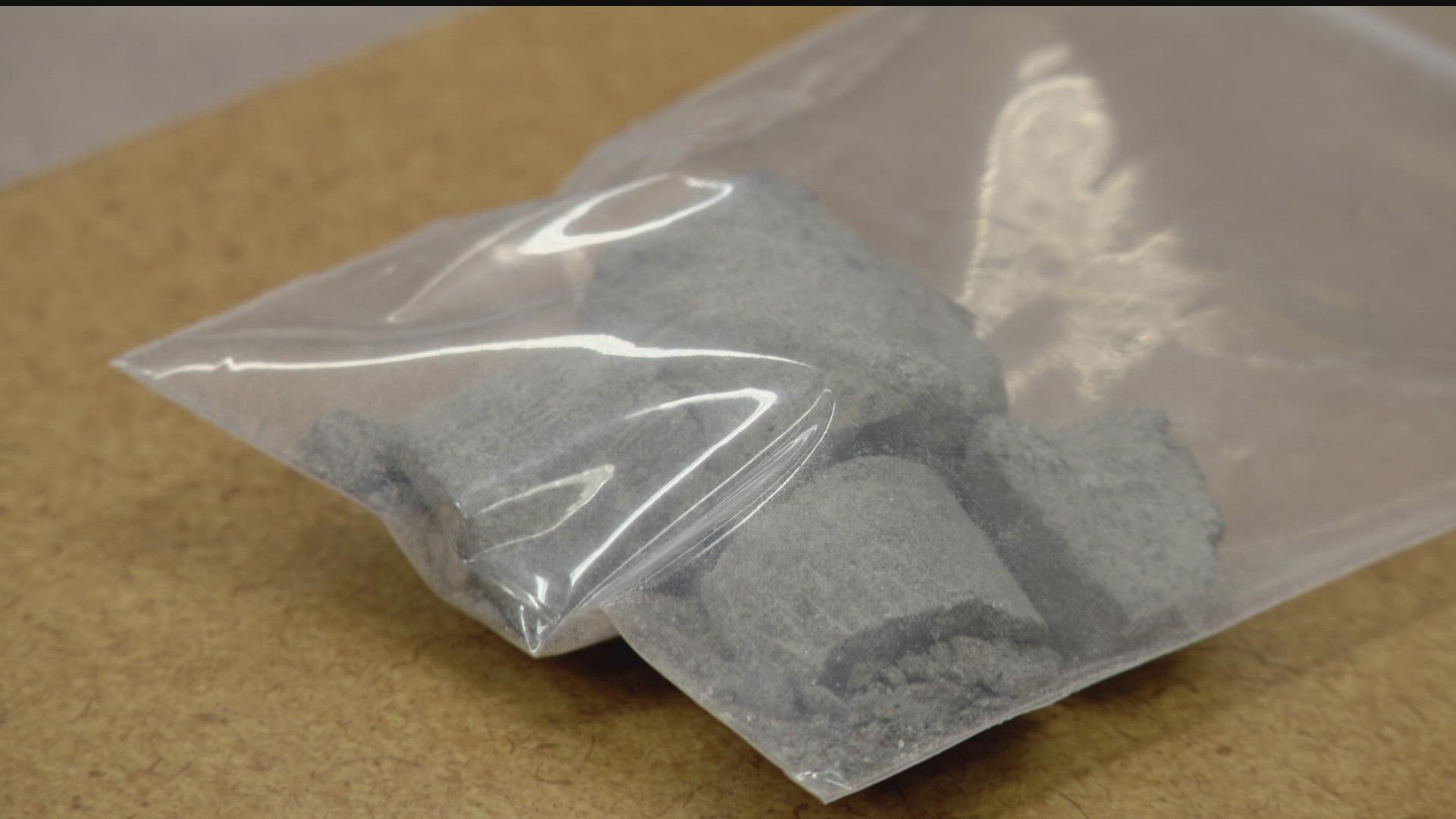BLOOMINGTON, Minn. — Medical experts are challenging claims made by Bloomington's police chief, following an announcement Thursday about a first-of-its-kind drug bust in Minnesota.
"Three weeks ago, I had all this lined up and I didn't think I'd be back here talking about the same guy," said Bloomington Police Chief Booker Hodges.
It was Oct. 18 when Bloomington police say they arrested 30-year-old Demetri Montoya.
"We caught him stealing at Walmart, he was in there with a stolen gun, stolen vehicle, stolen property, and, at the time, he had 13 warrants," explained Hodges.
He was later released on bond.
Fast forward to Nov. 8, Montoya was arrested again, this time accused of selling and possessing narcotics. Hodges said a search warrant led them to over 755 "m-box" fentanyl pills and 57 grams of what's known as "gray death" fentanyl.
"This fentanyl that you're seeing on this table is enough to kill 32,000 people," said Hodges.
In a press conference announcing the seizure Thursday, Hodges claimed gray death fentanyl is resistant to naloxone, the medication given to reverse an overdose.
But Medical Director of the Minnesota Poison Control System and emergency physician at HCMC, Dr. Jon Cole, says to his knowledge, there isn't any scientific data that indicates naloxone won't reverse an opioid overdose.
"I will say that I have never seen good evidence that there is an opioid out there powerful enough to resist naloxone," Cole said. "And there's very good evidence that naloxone will reverse intoxication from very, very potent opioids."
Cole said if a person suffering from an overdose doesn't appear to respond to naloxone, it's possible they ingested another narcotic, whether they're aware of it or not. For example, Cole says there's a phenomenon happening nationwide referred to as "tranq dope" — a combination of fentanyl and another substance known as xylazine. Cole says because the mixture contains xylazine, a brain depressant that is not classified as an opioid, it's unlikely naloxone could reverse its effects. However, Cole says the data around tranq dope still isn't totally clear.
"Tranq dope cases are very poorly described in the medical literature, and a lot of it ends up being sort of piecing it together from medical examiner data and individual cases that are not very well documented," he said.
The biggest takeaway, Cole says, is that naloxone is extremely effective and safe, and should be used in conjunction with rescue breathing and other maneuvers to elicit a response. And if you do suspect someone is suffering from an overdose, it's imperative to call 911 as soon as possible.
"Nobody, under any circumstances, should be deterred from attempting to use naloxone in a suspected opioid overdose, regardless of the color or mysticism around a specific drug that they took," he said.
Cole says he's glad there are now fewer dangerous narcotics on the street, but good public health messaging is imperative in preventing more people from dying from opioid overdoses.
"It's literally the thing that's killing my patients," he said. "If you come upon anybody who might be overdosed with an opioid, please give Naloxone right away. Call 911. And remember, rescue breathing always works for an opioid overdose."
To get more of these dangerous drugs off the streets, Hodges says changes are needed at the local and state level, which Attorney General Keith Ellison says he is committed to seeing through, supporting local prosecutors who handle these types of crimes.
"We're going to expand the number of criminal prosecutors who are in our office because now we have a state legislature who I believe are ready to heed the calls," said AG Ellison.
"Every single time we got to send our officers out to deal with this, I'm fearful. I want my officers to go home to their families," said Hodges. He went on to say, "I just hope we can get some changes moving forward."
Montoya was still in jail as of Thursday night, being held on a $50,000 bond.
He's charged with one count of first-degree sale of 50 grams or more of narcotics, and one count of second-degree possession of 50 grams or more of narcotics.
Bloomington police say they've responded to 70 overdose calls this year resulting in 15 deaths, compared to six overdose-related deaths all of last year.
Watch more local news:
Watch the latest local news from the Twin Cities in our YouTube playlist:

